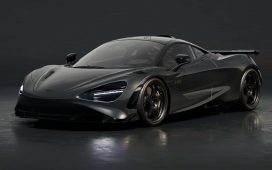What came first, the boy racer or the sports car? Academics have called for further research into the marketing of cars after analysis of UK accident data suggested that drivers of certain brands are more likely than others to cause a crash.
A study of more than 400,000 UK road accidents found that when “risky or aggressive manoeuvres” played a part in collisions, there was a significant statistical difference in driver culpability across different brands.
Dodgy driving – covering such reported infringements as speeding, jumping a red light, overtaking on double white lines or ignoring the humble pedestrian crossing – was more likely to be a factor when a Subaru, Porsche and BMW was involved than a Skoda or Hyundai.
Having factored in variables such as drivers’ ages and road types, the researchers hypothesised that branding could be to blame, in a paper published in the Journal of Social Marketing.
Lead author Alan Tapp, professor of social marketing at the University of the West of England, said: “All things being equal, you’d expect the same proportion of aggressive manoeuvres across all types.”
However, there was a higher prevalence in the Department for Transport collision data among makes he characterised broadly as those with “advertising and marketing that seems to celebrate performance driving, look at me, king-of-the-road stuff”.

Drivers of Subaru cars – once enthusiastically defined in his Top Gear days by Jeremy Clarkson as “a fire-breathing incarnation from the pixellated world of the PlayStation” whose slamming door “makes exactly the same sound as a recently shot pheasant hitting the ground” – were involved in proportionately the most “injudicious action”, the paper found.
“It’s chicken and egg – do aggressive drivers choose certain cars, or do brands make things worse?” said Tapp. “We know that some car makes spend hundreds of millions of dollars worldwide every year promoting their cars with imagery that, in some cases, subtly implies a connection between their make of car and high performance driving. We also know that the design of some makes seems to appeal to drivers who may want to push the boundaries of performance.
“Of course, these manufacturers abide by the laws and regulations that govern them and we are not suggesting otherwise. But now that this data has come to light, should we be pressing the manufacturers and regulators to take another look at the way in which modern marketing techniques might have an adverse effect on road safety?”
Co-author Dan Campsall, of road safety consultancy Agilysis, said: “While manufacturers are introducing all kinds of innovative technology to improve safety, the operator is still a human being, and we are sending them mixed messages about what is expected of them when they are driving.”
Mark Borkowski, a branding guru, said car manufacturers had long been “bewitching a consumer to buy into a lifestyle brand … you have the Top Gear or Grand Tour idiom, or movies like Fast and Furious or James Bond”.
“None of those experiences and imagery seem particularly real, but people maybe – particularly guys – step into those cars and think they’ve become those brands, even when you don’t have those Swiss mountain passes or the LA Freeway. And nothing looks more silly than being in a super-sleek car tootling slowly around on the streets of Guildford and Gosport.”
after newsletter promotion
A Porsche spokesperson said: “Safety at the wheel is of paramount importance to us,” adding that every buyer was invited to its dedicated “Porsche Experience Centre” at Silverstone, “to fully understand their car and to refine their driving skills on a course designed to replicate a British B-road”.
A Subaru UK spokesperson said that the brand had changed its range and focus since the 2011-2015 data examined in the paper, adding: “Our core pillars are safety, capability and reliability. We no longer import the sporty range from our rallying days to the UK. Our SUVs are very family-focused and we’re proud to have the 5-star Euro NCAP rating across the entire range.”
A BMW spokesperson said: “At BMW, nothing is more important than safety … This is also reflected in the way in which we market our cars in the UK and we spend a great deal of time and care in meeting the high standards set by the Advertising Standards Authority.”
Mike Hawes, chief executive of the Society of Motor Manufacturers and Traders, said: “Safety is the No1 priority for vehicle manufacturers and all their marketing and advertising is governed by strict regulations, including the Advertising Codes, which contain strict prohibitions on the depiction of high speed and irresponsible driving.
“As the authors themselves say, there are scientific limitations with this study and its findings must be treated with caution, given the myriad factors involved in driver behaviour and collisions. Britain benefits from some of the safest roads in Europe and the automotive industry is committed to improving this record still further by investing in technologies that better protect passengers, pedestrians and all other road users.”









